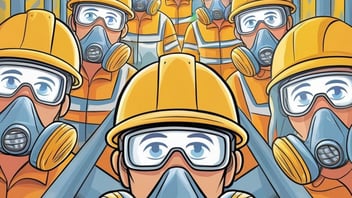Netflix goes down across the world. Viewers are in a panic: they restart routers, tweet complaints, and post questions collectively create an hour of online chaos.
When an emergency or some sort of widespread outage occurs, are your employees equipped to react responsibly or will they create chaos in your workplace?
To many employees, safety in the workplace is like a child wearing a helmet while riding a bike. They don’t want to do it, they probably don’t fully understand the importance of it, and they do it because an authority figure told them they have to.
That’s not what a safety culture is all about. The basics of safety are covered when you’re compliant with OSHA and other governing organizations, but you need much more than the basics and the bare minimum if you want a strong safety culture.
Benefits Of A Safety Culture
How can having an established safety culture help your company in the event of an emergency?
1. For starters, your employees are much more likely to make smart, safe decisions in an emergency.
When safety is the number one priority on any given day on the job, that knowledge and practice sticks with them through almost any situation.
2. Quality training prepares them for the most likely emergency situations.
When your leadership team is devoted to safety, they know to provide thorough training on a regular basis. Employees are given all of the information they need and are then refreshed on that information periodically.
3. Safe, informed employees keep business stable.
When your employees know what to do in an emergency, there is a lower chance of productivity being halted or delayed for great lengths of time. For instance, in order to prepare for natural disaster and to ensure business continuity, every employee should help check if there are enough emergency power source and a reliable emergency fuel service.
4. Employees are trained to make rational decisions in all areas of work.
Even when there is no emergency or the threat isn’t overwhelming, employees who are part of a strong safety culture are likely to improvise and problem solve effectively. Any team can use those valuable skills every day.
5. Accidents are less likely to occur.
It is advantageous to have responsible and adaptable employees, but an even better option is employees who work in such a way as to minimize the risk of accidents and disasters. After all, that’s what a safety culture aims to solve in the first place.
The bottom line is that a safety culture in your workplace aids in preventing these large scale accidents, but it also equips your employees to handle the situation if it does occur.





%20(1).webp?width=352&name=Blog%20Graphic%20(2)%20(1).webp)
Leave a Comment